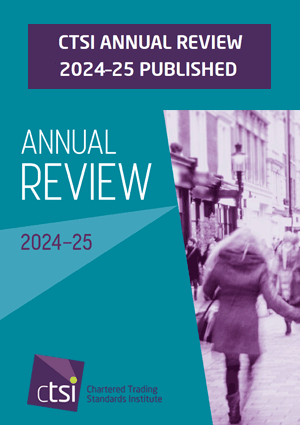Ofgem
|
|
|
Equity market return consultation: reducing the cost of capital for electricity distribution companies
Changes to methodology put greater weight on current market evidence.
Ofgem has today published guidance which will reduce the assumed cost of equity and cost of capital for electricity distribution companies.
The cost of equity is an important financial parameter. Changes to this affect the assumed cost of capital, which determines the return a company can earn on its investment during a price control. We are currently setting the electricity distribution companies’ price controls for 2015 – 2023.
In November, we assessed the business plans from all six distribution companies. We sent five of these plans back as we considered that they could deliver more value for consumers. The companies will resubmit their plans in March. Today we are setting out our baseline assumption of 6% for their cost of equity, resulting in an estimated cost of capital at 3.8% for the first year of the price control, 2015-16. As these companies are yet to resubmit their plans, a decision cannot be finalised at this stage.
When we assessed the business plans, Western Power Distribution (WPD) was the only electricity distribution company deemed suitable to be considered for fast-tracking, as its plans demonstrated clear value for consumers. This meant that in November we consulted on accepting its plans subject to our consultation on calculating equity market returns.
Today’s decision means that to stay in the fast-track process, WPD will need to make an equivalent reduction in its assumed cost of equity to 6.4% resulting in an overall cost of capital estimated at 3.9% for 2015-16.
WPD now has to decide whether to accept these adjustments. If it does not, it will revert to the slow-track process and resubmit plans in March, along with the other five companies.
-Ends-
Notes to editors
1.
|
|
Ofgem’s minded-to position for |
|
Cost of equity (post-tax) |
6% |
|
Gearing |
65% |
|
Overall cost of debt 2015-16 |
2.6% estimate (updated each 31 October) |
|
Vanilla WACC 2015-16 |
3.8% estimate (updated each 31 October) |
Cost of debt indexation – Ofgem operates an indexed basis for its cost of debt allowances, which represents a benchmark for companies’ cost of debt costs. It is the benchmark costs that are allowed for in companies’ revenues. The index is recalculated on 31 October each year using market data over the previous ten years. Because market interest rates are currently at low levels, Ofgem projects that the cost of debt index is likely to fall incrementally after 2015-16.
Cost of equity – The expected rate of return on investment that is required by a company's shareholders. The return consists both of dividends and capital gains (eg increases in the share value). Ofgem calculates the cost of equity on a post-tax basis.
Weighted Average Cost of Capital (WACC) - This is the expected rate of return required by investors. It includes both the cost of debt to a firm, and the cost of equity.
2. Following our consultation on our methodology for assessing the equity market return can be read in full on our website
This was prompted by a provisional decision in November 2013 by the Competition Commission relating to Northern Ireland Electricity. This raised the question as to whether greater weight needed to be given to current market evidence in assessing the equity market return. This was a change from regulatory standard practice of looking at longer term evidence.
3. Distribution charges
There are 14 different distribution networks (DNOs) in Britain. The areas they manage can be found on our map.
These are regional monopolies and customers rely on regulation by Ofgem, rather than competition, to get the service they require at a reasonable price. In the price control review we set the total revenues that DNOs can collect from customers and we place strong incentives on these companies to innovate and find new ways to improve their efficiency and quality of service. The RIIO-ED1 price control review sets the revenues for the eight-year RIIO-ED1 price control period. The current price control expires on 31 March 2015 and the RIIO-ED1 price control will run from 1 April 2015 - 2023. During this period companies will continue to experience strong incentives to find more efficient ways of delivering their outputs – and the benefits will be shared with consumers throughout the period.
4. Ofgem is the Office of the Gas and Electricity Markets, which supports the Gas and Electricity Markets Authority, the regulator of the gas and electricity industries in Great Britain. The Authority’s powers and duties are largely provided for in statute, principally the Gas Act 1986, the Electricity Act 1989, the Utilities Act 2000, the Competition Act 1998, the Enterprise Act 2002, the Energy Act 2004 as well as arising from directly effective European Community legislation.
For further press information contact:
Lisa O’Brien: 020 7901 7426
Chris Lock: 020 7901 7225
Rory Edwards: 020 7901 7246
Out of hours contact: 07766 511470


